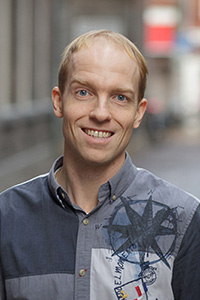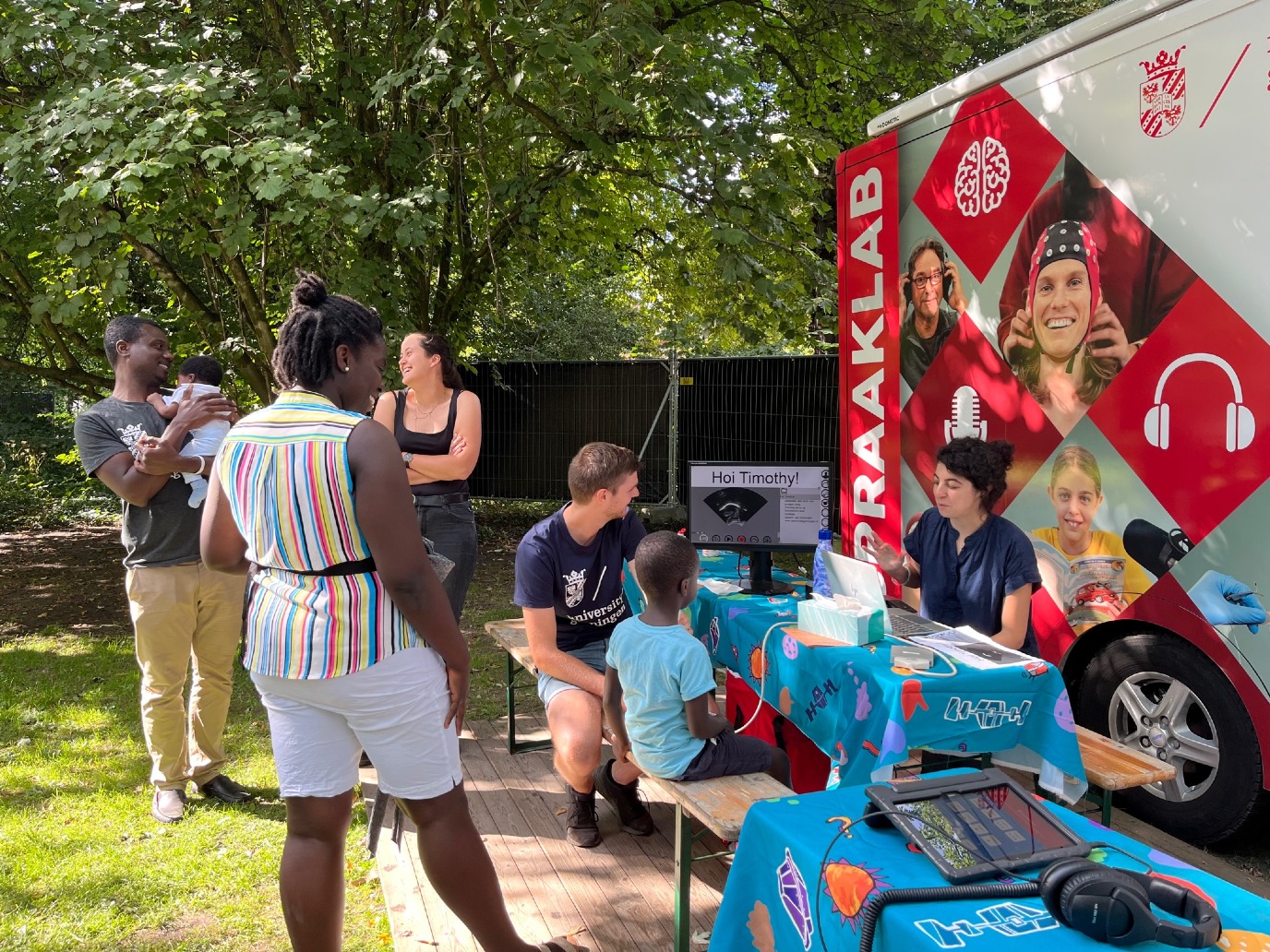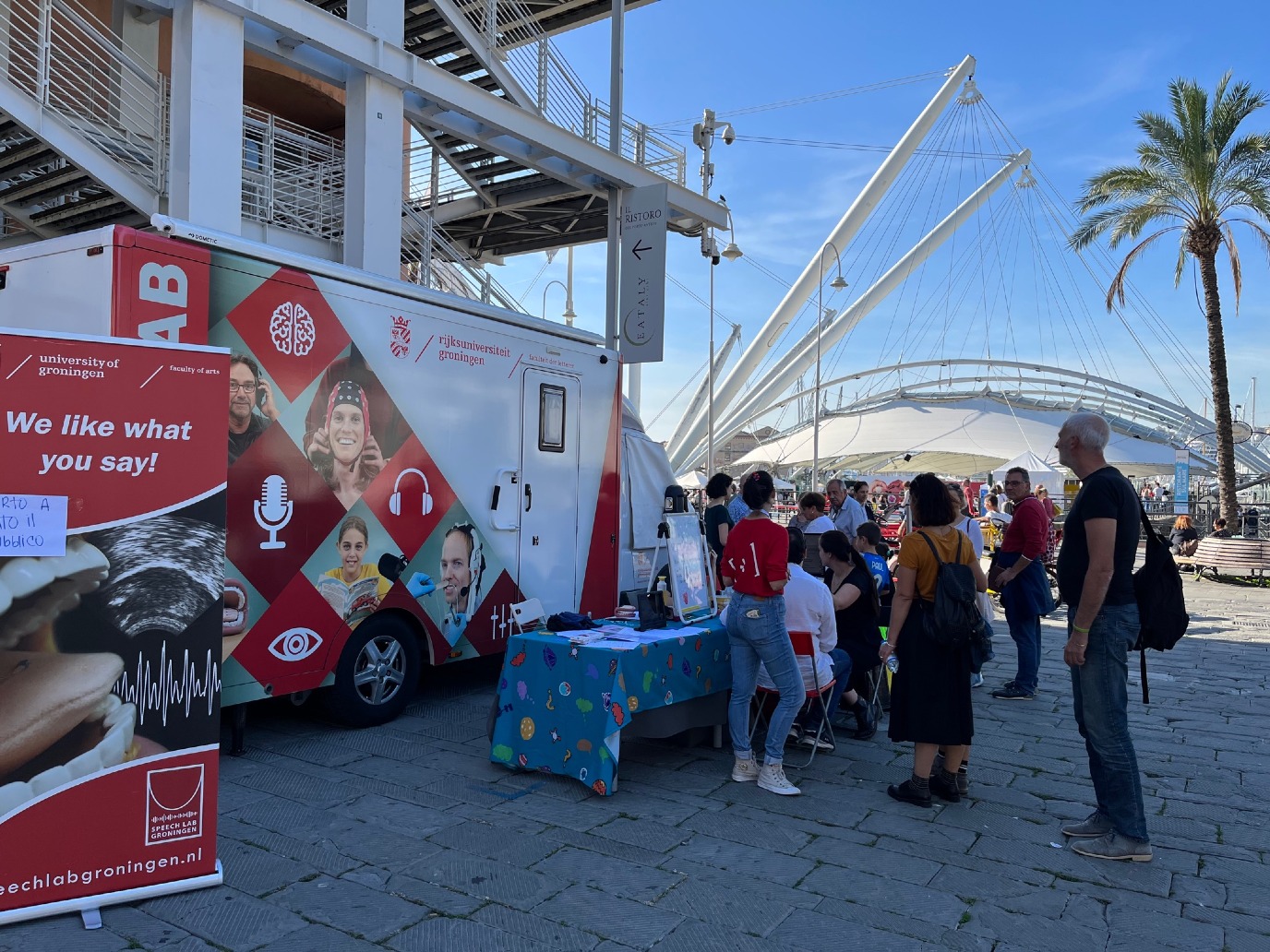UG extends support for chair by special appointment in Lower Saxon/Groningen Language and Culture

The Board of the University of Groningen has decided to extend its financial support to the chair by special appointment in Lower Saxon/Groningen Language and Culture at least up to and including 2028. During the same period, the chair by special appointment can also count on the support of the Faculty of Arts and the Province of Groningen. This should allow professor by special appointment Prof. Martijn Wieling to proceed with and solidify his work within the chair group and the Centre for Groningen Language and Culture for the next five years. ‘Dialects and other minority languages are part of our culture, and inextricably linked to the UG and the University of the North.’
Wieling was appointed professor by special appointment in Lower Saxon/Groningen Language and Culture in 2018. He leads a number of academic research groups on regional languages and dialects. As an example, together with his team, Wieling investigates changes in the use and spread of dialects. Many children no longer speak the local dialect. Wieling's team maps the areas where dialects are still spoken, and develops tools to promote the transmission of the Groningen dialect and other Lower Saxon dialects, including the online app and the Van Old noar Jong lesson package that can be purchased via the UG's Pre-University Academy.

Frisian language area
Research within Wieling's team extends beyond the Groningen language and culture. For example, PhD candidate Raoul Buurke studies variation and change in the Lower Saxon language area, as compared to the Frisian language area. He also explores the attitude of speakers regarding the local dialect. He does so using data from Lifelines. Nearly 40,000 respondents completed his survey on dialect.
Speech technology in minority languages
Dr Martijn Bartelds, who recently defended his PhD thesis cum laude, studied speech technology in minority languages. Among other things, he developed a new method for measuring differences in pronunciation. This allowed him to quantify to what extent dialects differ from one another. He also studied ways of improving automatic speech recognition for regional languages. This ultimately makes it possible to generate better automatic subtitles for videos in these regional languages. Starting from next year, Bartelds will be working as a researcher at Stanford University in the US, thanks to a Rubicon grant from the Dutch Research Council (NWO). There, he will continue to work on speech technology for minority languages, including Gronings and Frisian.
Data bank for Gronings
Since 2018, the chair by special appointment has focused strongly on digitization. For example, the WoordWaark data bank for Gronings initiated by Goffe Jensma has been further developed and filled in. This data bank also plays an important role in the Massive Open Online Course (MOOC) for Gronings that is being developed within the chair, by PhD candidate Hedwig Sekeres and dialect consultant Fieke Gosselaar, among others.

Regional character
In the next five years, Wieling will focus on further elaborating current research and supervising the PhD candidates who work within the area of expertise of the chair by special appointment. Assistant Professor in History and Cultural Studies at the Faculty of Arts Dr Maarten Zwiers will also be launching a new project within the chair by special appointment. In this context, he will also conduct research on the regional culture of Groningen, and how this culture is expressed, for example in literature and music. He will also explore how music from the province (and dialect music in particular) can be deployed to spark interest in the region and the regional dialect, particularly among young people. This research project aims to deploy musical culture to improve the quality of life in rural communities, since interest in local culture can lead to a desire to take part in and contribute to this culture.
‘Performing’ at festivals
Wieling and his team devote a lot of energy to making contact with the general public, both in North Netherlands and beyond. In the past five years, the team has attended festivals such as Zpannend Zernike, Letterenfestival, Noorderzon, Zwarte Cross, and Festival della Scienza in Genoa, Italy, with their mobile laboratory, SPRAAKLAB, in order to collect data and introduce children to dialect and dialect research. In this article Martijn Wieling and Defne Abur talk about their experience of doing research at festivals.
| Last modified: | 23 September 2024 09.16 a.m. |
More news
-
24 March 2025
UG 28th in World's Most International Universities 2025 rankings
The University of Groningen has been ranked 28th in the World's Most International Universities 2025 by Times Higher Education. With this, the UG leaves behind institutions such as MIT and Harvard. The 28th place marks an increase of five places: in...
-
05 March 2025
Women in Science
The UG celebrates International Women’s Day with a special photo series: Women in Science.
-
16 December 2024
Jouke de Vries: ‘The University will have to be flexible’
2024 was a festive year for the University of Groningen. In this podcast, Jouke de Vries, the chair of the Executive Board, looks back.
